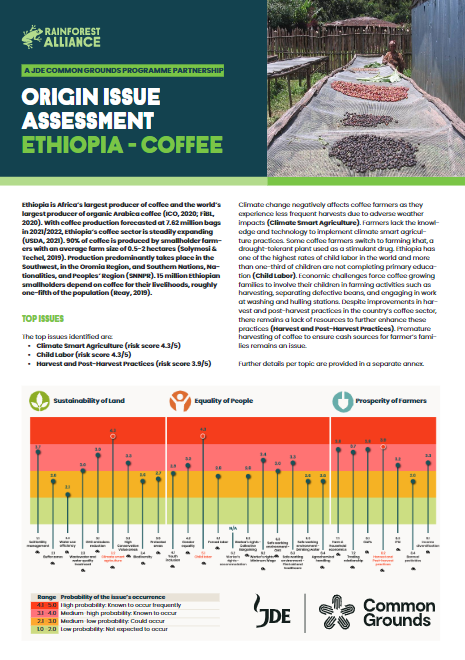Origin Issue Assessment: Ethiopia Coffee
As part of the JDE Common Grounds program, the Rainforest Alliance investigated the key risks present in the Ethiopian coffee sector. According to the 2021 Ethiopia Origin Issue Assessment (OIA) the following risks are present in country’s coffee sector: climate smart agriculture, child labor, and harvest and post-harvest practices.
Climate change negatively affects coffee farmers as they experience less frequent harvests due to adverse weather impacts. Farmers lack the knowledge and technology to implement climate smart agriculture practices. Some coffee farmers switch to farming khat, a drought-tolerant plant used as a stimulant drug. Ethiopia has one of the highest rates of child labor in the world and more than one-third of children are not completing primary education. Economic challenges force coffee growing families to involve their children in farming activities such as harvesting, separating defective beans, and working at washing and hulling stations. Despite improvements in harvest and post-harvest practices in the country’s coffee sector, there remains a lack of resources to further enhance these practices. Premature harvesting of coffee to ensure cash sources for farmer’s families remains an issue.
